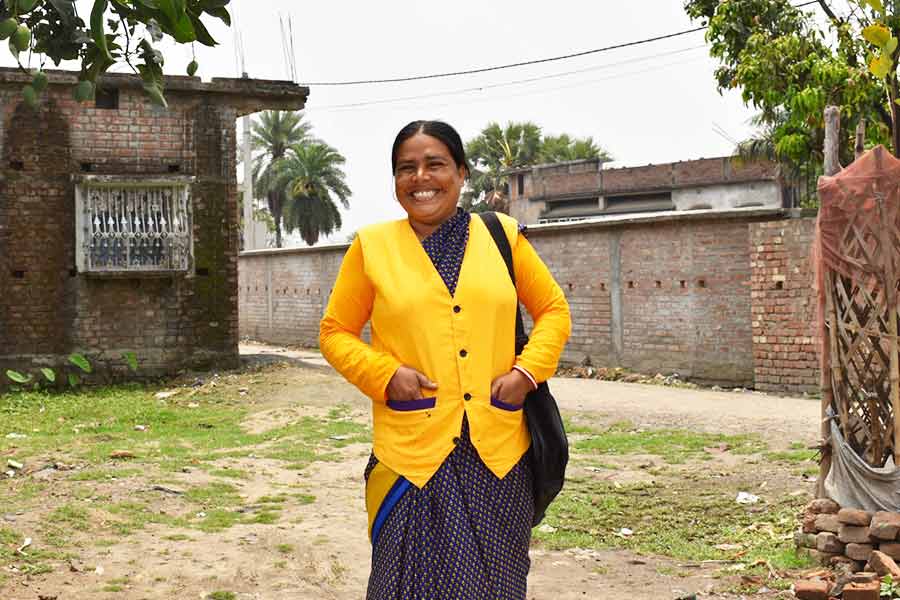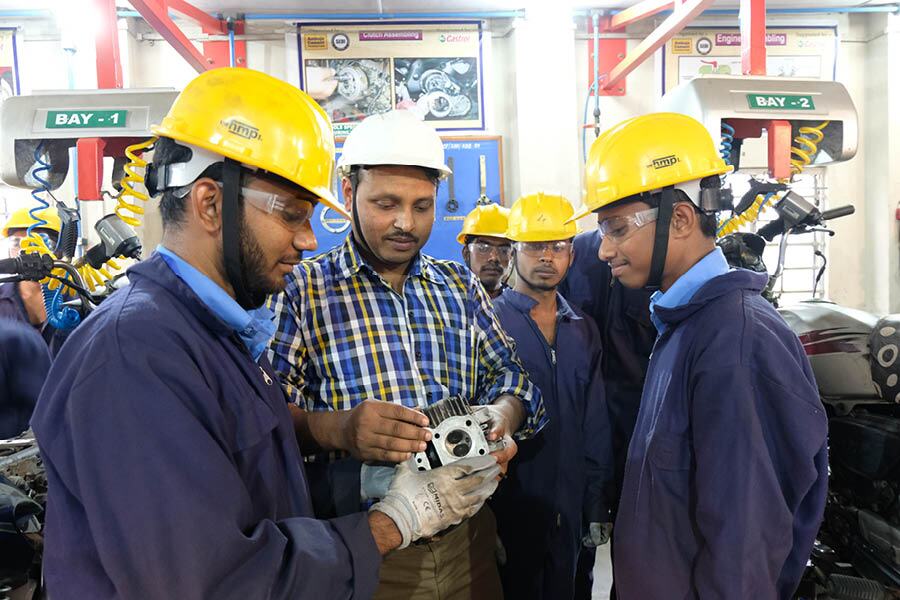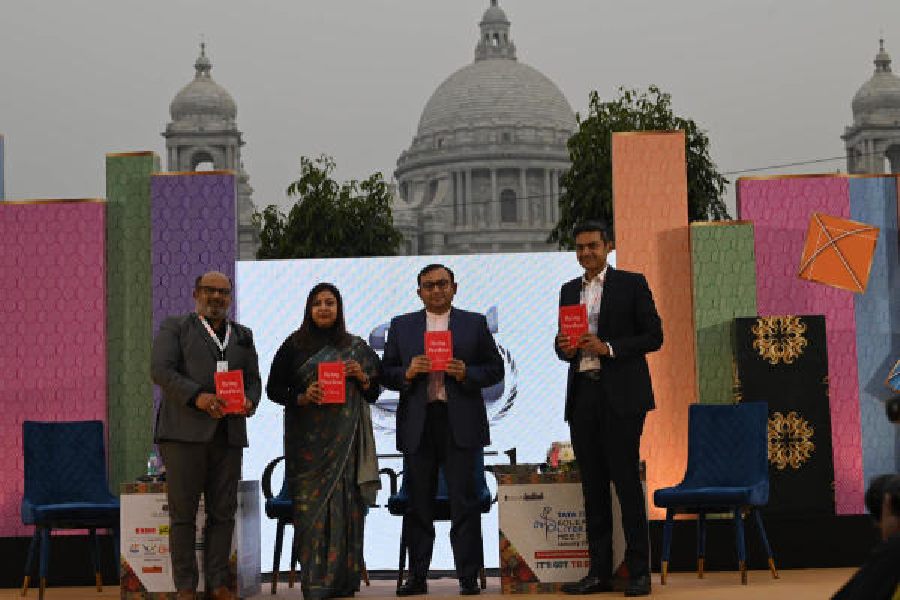“200 taka-r aayer jonno 500 taka to daktar ke ditey hochhe…taa beedi bandha ki bhalo?” (If for earning Rs 200, Rs 500 goes to the doctor for treatment, how is beedi rolling good?) 35-year-old Ajija Bibi asks workers at every campaign against the beedi industry that she takes part in.
Ajija Bibi was once a part of the industry in her village Dohitpur, Murshidabad. But her life changed when she joined a campaign as a health volunteer and started advocating against tobacco.
The very work that brings easy money and financial independence eventually ends up killing beedi workers. Prolonged exposure to tobacco, dust and other particles make beedi workers prone to respiratory disorders such as bronchial asthma and tuberculosis, cardiovascular disorders like ischaemic heart disease, reproductive issues like infertility and cervical cancer, and skin diseases.
My Kolkata caught up with the tobacco warrior to learn about the tireless battle she has been battling bravely.
Easy money, peril to life
Ajija was only 12 when she rolled her first beedi. Living in a family of 12 with 10 siblings, life was not easy. Her father was a farmer and earned hardly enough to feed the entire family. That’s when a few of her family members, including her mother, took up beedi rolling. An easy job and without any investments, every batch of thousand beedis fetched them some extra money. “I was in school when my mother taught me to roll beedis. The money we earned from this job funded our education and school supplies. It is an easy task that we could do from home in our free time,” she said.
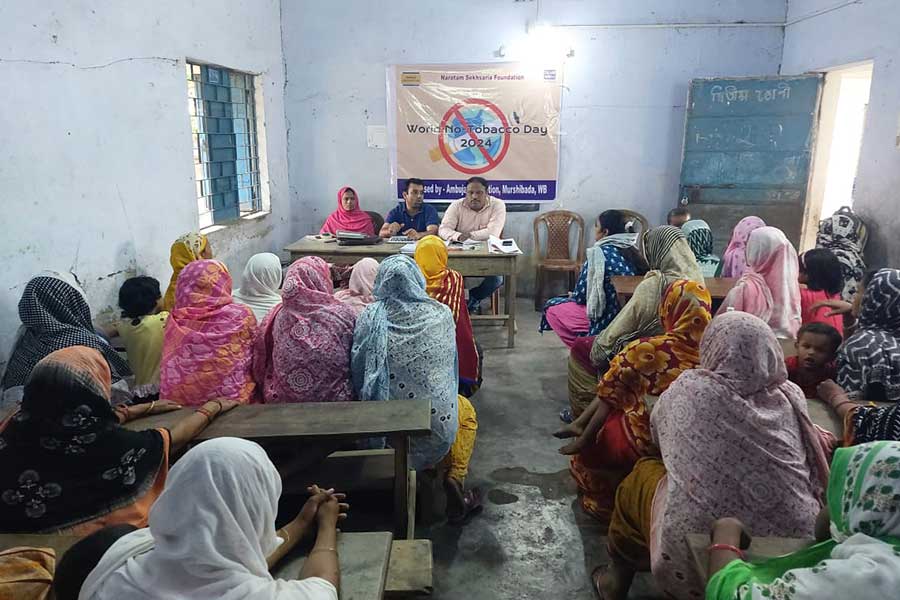
As a ‘Sakhi’ volunteer with Ambuja Foundation, Ajija learnt about the ill-effects of tobacco
Like Ajija, about 3,000 people at Dohitpur village in Murshidabad work for the tobacco industry. Most of them are women and children, helping their families to earn on the sidelines of household chores and studies. “Most people take up beedi rolling to support their families. For women, it is also a way to be financially independent. They don’t want to ask their husbands for money for their needs. One does not need any investment. The raw material reached your house and once the work is done, the beedis are collected and you are paid.”
The current pay for a bundle of 1,000 beedis is Rs 200. The more beedis one rolls, the more they earn. Women in every household spend their days rolling beedis and can roll up to 3,000 beedis a day! Children are also engaged to increase the production.
Young Ajija found herself so engaged in rolling beedis that she quit school when she was 16. Her dreams came to a standstill. “When I was studying in school, I dreamt of working for the people and getting into some government job that would not only fetch me enough salary but also respect. But that never happened and I got married off. Soon I had my sons and I realised I had to keep rolling if I had to fund their education and miscellaneous expenses,” said the mother of two boys.
Years after being associated with the industry, Ajija failed to notice the danger that loomed over her family because of tobacco. Many children in her village started getting rashes. The peril also knocked on the doors of someone close to Ajija. “My mashi (maternal aunt) was diagnosed with cancer. She was a beedi roller too. Even then, I did not realise what led to it.”
From ignorance to enlightenment
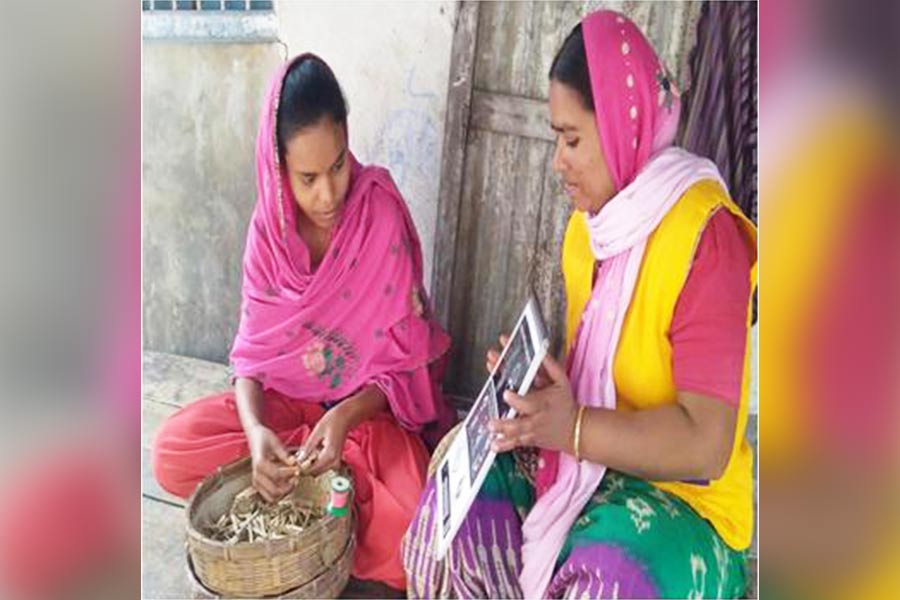
Ajija spreads awareness about mother and child care in rural Murshidabad
In 2014, Ajija got the chance to transform her life. When Ambuja Foundation came to her village looking for community health volunteers for their Sakhi initiative, Ajija volunteered to become one of the Sakhis. Little did she know that a big revelation awaited her. “When the Ambuja team came to my village, I thought it was a great opportunity. In one of the awareness programmes, I got to know that tobacco, which was a mode of livelihood for us, was actually killing us. For earning Rs 200, many are ending up spending thousands and lakhs of rupees on treatment.”
But many beedi workers do not fall under any formal recognition or have access to government welfare schemes. This makes them vulnerable to exploitation and financial instability. Although the central government has allotted several schemes, the rural workers are still unaware of them.
According to data available with the Union minister of state for labour and employment, in 2023, there were 49.82 lakh registered beedi workers in the country, of which 36.25 lakh were women. In Dohitpur, too, majority of the women are engaged in beedi rolling.
When Ajija realised the perils of beedi rolling, she decided to spread awareness. But the women retaliated by asking — ‘What is the alternative?’ “The lack of job opportunities for women posed a hurdle in our campaign. While I told them to look for some other work, they did not know what else to do. They said that they have no money to invest or skills to do anything else,” said the community health worker.
Ambuja Foundation then started their livestock-rearing programme, where they created goat-based livelihood opportunities for the beedi workers.
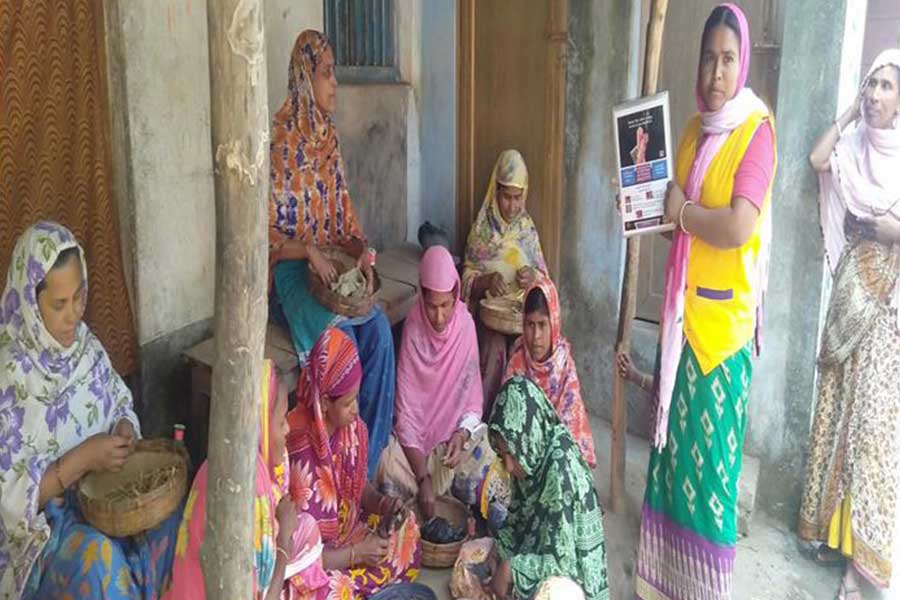
With Ajija’s help, many women ‘beedi’ workers have quit ‘beedi’ rolling and joined other jobs
Gradually, after reaching out to over 1,000 women, Ajija managed to convince 150 women to walk away from beedi rolling, guiding them to take up livestock rearing, poultry and other small businesses like sewing. “With Ajija’s support, there has been a 67 per cent reduction in beedi rolling, with many women reducing from rolling 3,000 beedis per day to just 1,000. As a result, women are now stepping out of their homes, and exploring other modes of income. There is still a long way to go, but the journey has begun,” Sourav Mukherjee, senior project executive, Ambuja Foundation (Farakka unit), told My Kolkata.
Besides spreading awareness against beedi rolling, Ajija also preaches against smoking. Her two sons have also joined her. “Both my sons tell people to stay away from tobacco. The older one has completed his BEd and is giving tuitions, while the younger one is preparing for NEET. They tell their friends to not smoke or consume things like Tiranga (chewing tobacco),” she said.
Setting an example for the women of her community, Ajija has also completed her secondary education through distance learning. Today, she spends her days promoting maternal and child health and has reached out to 350 pregnant and lactating mothers — ensuring 100 per cent institutional deliveries. Ajija shows courage and grit, and she says that her fight will continue.
